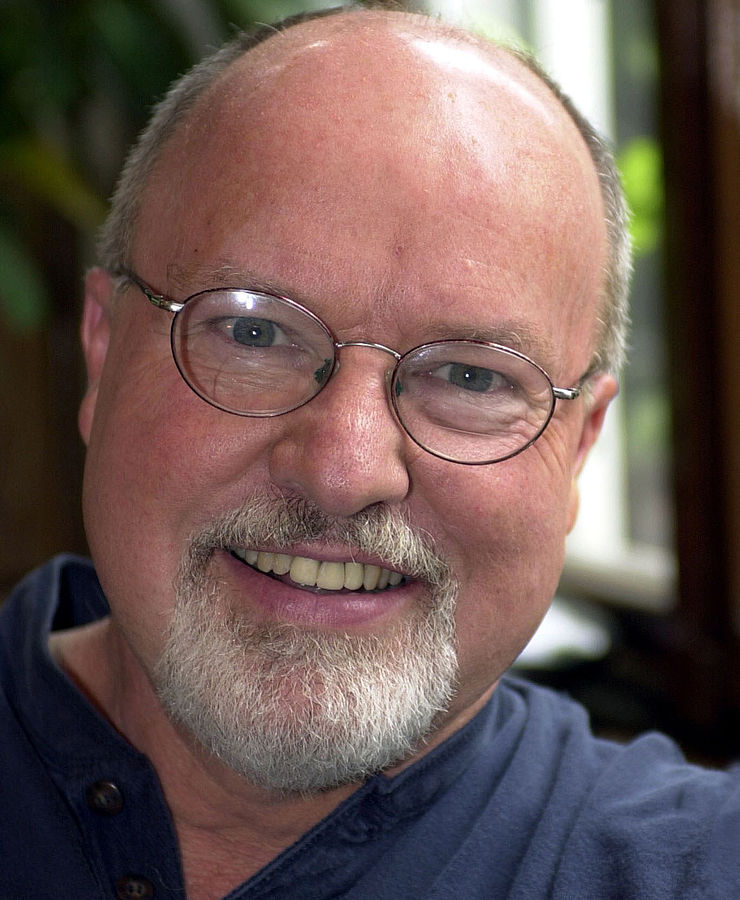by Eleanor Johnston and Wayne Fraser
Many in Niagara Diocese may know Richard Rohr from his book Falling Upward, Bishop Michael’s 2014 selection as his Lenten book.
However, you may not be aware that you can receive daily meditations in your email inbox from Rohr. We find these daily readings uplifting and inspiring.

Rohr is a Franciscan monk, founder of the Center for Action and Contemplation in Albuquerque, New Mexico. As our Diocesan website explains, “Drawing from his own Franciscan heritage and other wisdom traditions, Richard Rohr reframes neglected or misunderstood teachings to reveal the foundations of contemplative Christianity and the universe itself: God as loving relationship.”
Rohr advocates the meditation tradition of Christianity, what he names the Perennial Tradition, for it is found across all religions.
Through contemplative silence, one enters the presence of Presence; one is able to hear the still small voice of God. Rohr explains, “In a silent posture of self-emptying, we let go of habitual thoughts and sensations and connect with an Inner Witness—God’s presence within—that gazes back at ourselves and out at reality with an Abiding Love.”
Without contemplative practice, Rohr asserts, religion becomes the “repetition of rote, wordy prayers and attendance at social prayer.” Through regular periods of contemplation, one enjoys an experiential relationship with Divine Presence. True transformation—what John the Baptist called baptism “with fire and the spirit” and Jesus termed rebirth “from above”—becomes a reality in each human heart and soul.
Without such personal transformation, we are left with defensive barriers against others unlike our own kind, and we focus on “externals and non-essentials.”
Rohr tells the story of Trappist monk Thomas Merton, one of the first in the 1950s and ‘60s to teach the contemplative practice lost over the centuries by the church. “Merton was not very popular with many of the older monks and was considered a rebel because ‘he told [them] that [they] were not contemplatives. [They] were just introverts saying prayers all day’ . . . You can imagine how well that was received.”
Rohr is “convinced that many, many young seekers left seminaries, ministries, religious orders and convents basically because no one taught them how to pray!
Without a contemplative life, poverty, chastity, obedience and community itself do not work or even make sense. And ministry becomes another way of running away or trying to find yourself instead of real service for others.”
The Christian contemplative tradition stretches back to the earliest church Fathers and Mothers who in the 4th century fled to the desert “so they could practice what they felt was authentic Christianity, unhindered by the priorities of the new imperial religion that was based largely on externals.”
Your public and your church library will have books on mysticism. Mystics teach us that prayer is not about what we say to God but what we receive from God, Love that enables us to move beyond judging and labeling, Love that enables us to love God, the human race and all of nature.
A reporter once asked Mother Teresa, “When you pray, what do you say?”
She replied, “Nothing; I listen.”
“What do you hear?” asked the reporter.
“Nothing. God listens,” she answered.
The daily meditations Rohr sends out through email seek to teach the contemplative tradition and offer thoughtful analysis of Biblical and Church teachings. It is not a new way of looking at Christianity, but a very old way of experiencing Christ. Jesus taught his disciples to pray. We highly recommend this daily food for thought, action and prayer.
Sign up for free at https://cac.org/sign-up/


A Pentecost Message from Bishop Susan